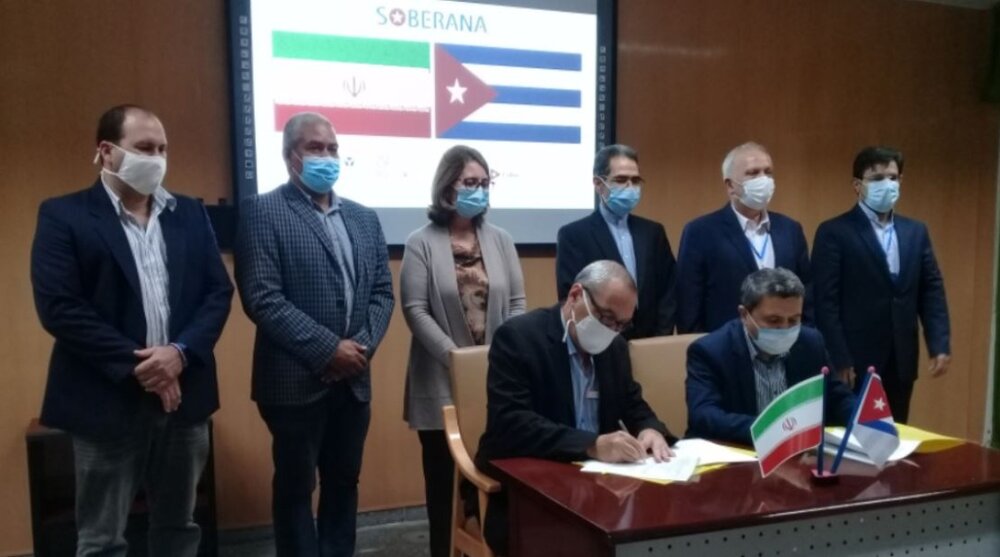Tehran, Havana form ‘strategic alliance’ to produce COVID-19 vaccine

TEHRAN - Kianoush Jahanpour, spokesman for Iran's Food and Drug Administration, has said Iran and Cuba have formed a ‘strategic alliance’ through working jointly on a project for producing a potential coronavirus vaccine.
“Strategic alliance for both #Iran and #Cuba. Together we will move faster,” he wrote on his Twitter account on Saturday.
He touched on an agreement recently signed by the Pasteur Institute of Iran and the Finlay Institute of Cuba which gives the two countries an opportunity to move faster toward realizing the goal of ‘immunization against coronavirus’.
Jahanpour said on January 1 that the first batch of coronavirus vaccine which will reach Iran will be probably purchased directly from a foreign country.
“Following that, Iran will receive its share of the COVAX vaccines and then the Pasteur Institute of Iran will co-produce a vaccine with a Cuban company, and finally, the domestically-made vaccine will be produced,” he explained, IRNA reported.
He went on to say that the human trial phase of the vaccine has been carried out successfully in Cuba. “The second phase of the human trial is being conducted under the supervision of the Pasteur Institute of Iran in Cuba. Provided that the second phase is successful, the third phase will be implemented in Iran.”
Jahanpour also retweeted Michael Shifter, the president of the Inter-American Dialogue, a think tank based in Washington, as saying: “The news that Cuba and Iran are working to produce a COVID-19 vaccine is hardly surprising. Both governments have been subjected to harsh U.S. sanctions, which have limited opportunities to develop and access a vaccine. The alliance is geopolitical, but also pragmatic.”
On December 29, 2020, the first coronavirus vaccine made by Iranian researchers, was unveiled and injected into three volunteers.
Hossein Vatanpour, an official with the Ministry of Health, has said 16 Iranian knowledge-based companies are working on all types of vaccine platforms. One company is active in producing DNA-based vaccines, and about three others are working to make mRNA-based vaccines, he added.
MG
